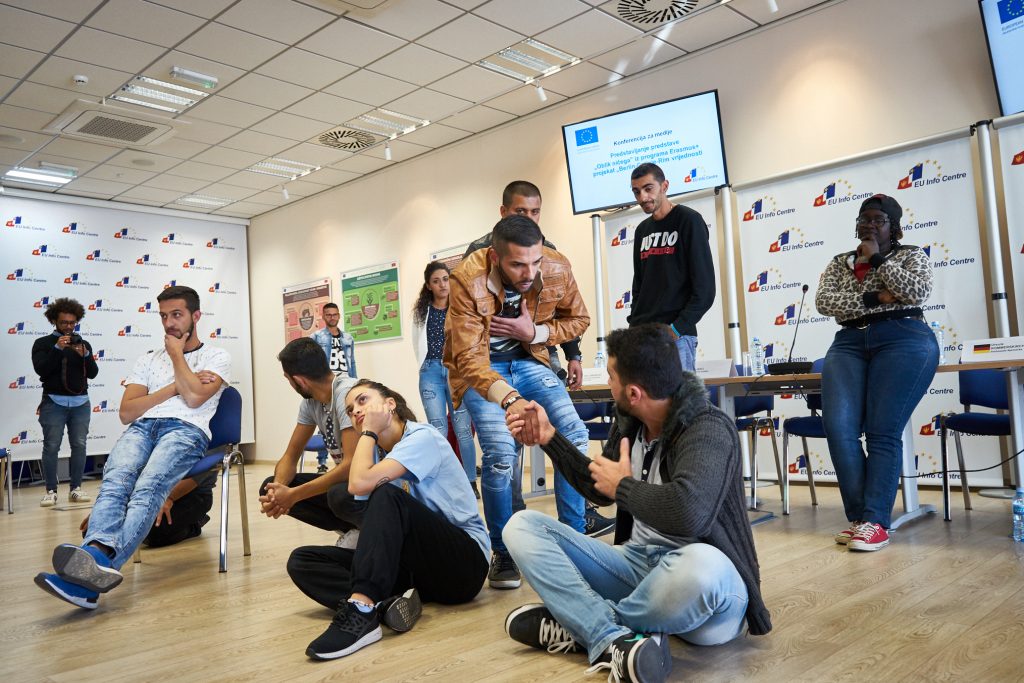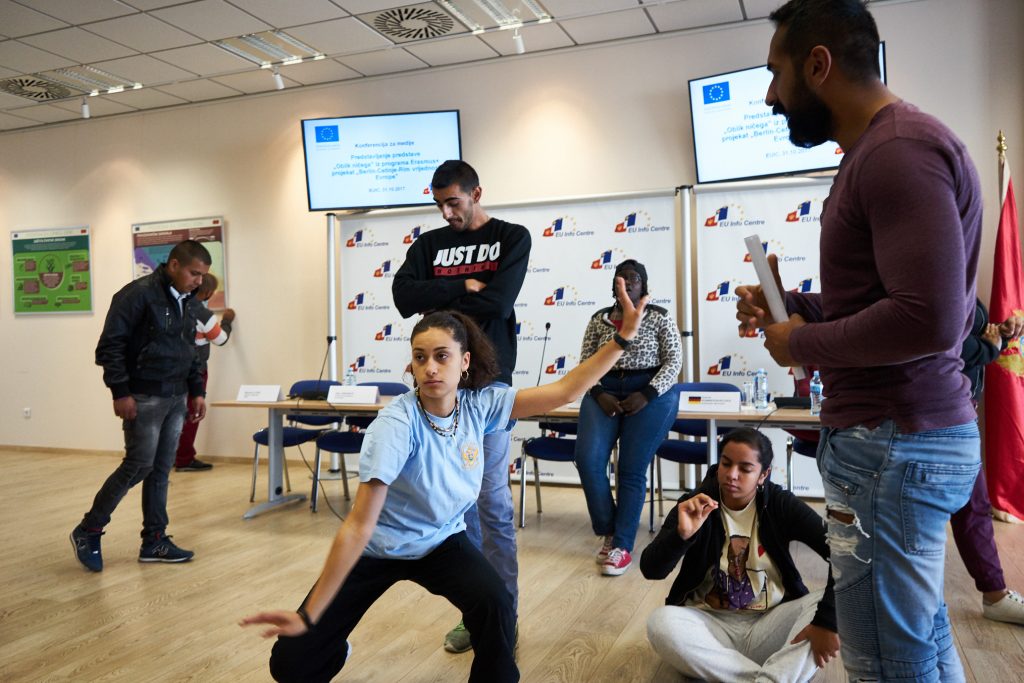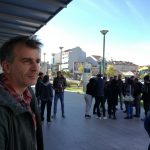PODGORICA, 31 October 2017 – A Roma mediator unsuccessfully looks for a teacher, Maria, so she could teach a Roma boy to read and write, an Albanian worker is offered a job on the black market in Germany, a father cannot understand his daughter’s love for a boy of a different nationality, institutions remain deaf to their pleas, and nothing comes from politicians’ promises. These are segments from the lives of 16 young people from four different countries transposed onto the stage within the project “Berlin–Cetinje–Rome Values of Europe”, which was presented today at the EU Info Centre.

Through dance, singing and acting, the audience can feel what young people from this region face, whether they live in Montenegro, Bosnia and Herzegovina, Italy or Germany. In this performance called “The Shape of Nothing”, 16 amateur actors talk about their problems in German, Italian, Montenegrin, Albanian, Bosnian and Arabic, but the audience can understand them perfectly. Thus the performance itself reinforces the message this project wishes to send – that understanding is possible between different cultures. Through various workshops, one of which is on theatrical art, the project participants were able to learn from the experiences of their peers. When they joined the programme, each one of them came with their own personal values and ways of life, and in this informal education process they all had the opportunity to get to know and consider different values.


Stage director Petar Pejaković, who has often dealt with marginalised groups in his work, says that through this project he has tried to show how art can be applied to social problems and how it can change the social environment for the better. At the very least, while working together during a three-day theatre workshop, this group of young people were reminded of elementary human values – understanding, love, tolerance, and, as Pejaković said – play.
 The project is financed by the EU programme Erasmus +, and is run by experts from three different countries participating in the project. At today’s conference, its significance for social integration of marginalised groups, education mobility, and the other aspects of this programme were presented by the project coordinator from Berlin, Patrizia Bichi, a film director from Italy, Massimo D’Orzi, a theatrical producer from Montenegro, Edin Jašarević, and representatives of the Italian and German embassies in Montenegro, Teresa Albano and Ursula Rommerskirchen-Hilbertz.
The project is financed by the EU programme Erasmus +, and is run by experts from three different countries participating in the project. At today’s conference, its significance for social integration of marginalised groups, education mobility, and the other aspects of this programme were presented by the project coordinator from Berlin, Patrizia Bichi, a film director from Italy, Massimo D’Orzi, a theatrical producer from Montenegro, Edin Jašarević, and representatives of the Italian and German embassies in Montenegro, Teresa Albano and Ursula Rommerskirchen-Hilbertz.
More details on the project can be found at: valuesofeurope.com.
